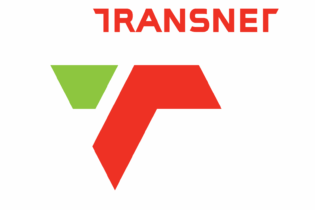International credit insurer Coface says it has noted a slowdown in the freight industry as a result of organisations consolidating deliveries to save costs. Other factors are the fluctuations in the oil price and the weakening rand, which can further affect economic growth.
In addition to these market pressures, the impending tolling of Gauteng’s highways is expected to have an adverse effect on the road transport industry, but could provide opportunities for rail freight. The greatest hindrances to companies currently using the rail system are inadequate infrastructure as well as the suitability of rail transport for specific products being transported. While the date of the toll implementation and costs have not been finalised, Coface expects the freight industry to react negatively to these increased operational expenditures. Coface does not foresee freight forwarding companies absorbing the toll costs, but will rather increase their freight forwarding charges. This is expected to have a knock-on effect on suppliers, which will either have to absorb the additional delivery costs or pass them on to consumers. Change in company strategies, and acquisitions and mergers could become a challenge for smaller companies. A secure and prompt freight network is extremely important, particularly in a country as large as South Africa, which is over 1.2 million km² in area. South Africa’s location is one of its strengths because seaports and airports for international connections are easily accessible. Situated in the mid-southern hemisphere between the Americas and Asia, South Africa has the potential to develop further as an international freight transport hub.Reliability and security are critical for South Africa to be competitive. Bottlenecks and backlogs hamper economic growth and raise costs. South Africa’s labour strikes are above the global average and hamper economic growth, often resulting in companies being unable to supply customers or receive materials.
Combining these inefficiencies with the consistently high cost of freight, as well as the increased labour costs putting further pressure on pricing, reduces South Africa’s global competitiveness, particularly where neighbouring countries such as Namibia and Mozambique offer more efficient, cost-effective alternatives. Cutting South Africa’s total cost of logistics by eliminating avoidable expenditures is the key to improved global competitiveness. Businesses must align their focus to support public infrastructure investment and collectively tackle issues such as skills development. The rail and port infrastructure is in need of repair and modernisation after decades of inadequate investment, with an estimated R80 billion required to refurbish infrastructure and purchase new equipment. Transport costs are a critical factor for growth in the freight industry. A large component of freight transport costs is fuel, especially for air and road freight. Higher fuel prices have a serious effect on haulers. Increases in the fuel price since 2009 have had an adverse effect on the industry. With austerity measures taking hold across Europe and the US, shipping levels may substantially slow the global freight industry’s growth. Even so, South Africa is expected to have a relatively successful year ahead in the rail and maritime freight sectors as exports of commodities to Asia remain high. Export growth requires a sound regulatory framework and will almost certainly require further private-sector participation through strategic partnerships. While investment into transportation infrastructure has been necessary, it has been costly. A major concern is the effect of the economic recovery on these infrastructural development costs over the next few years.






